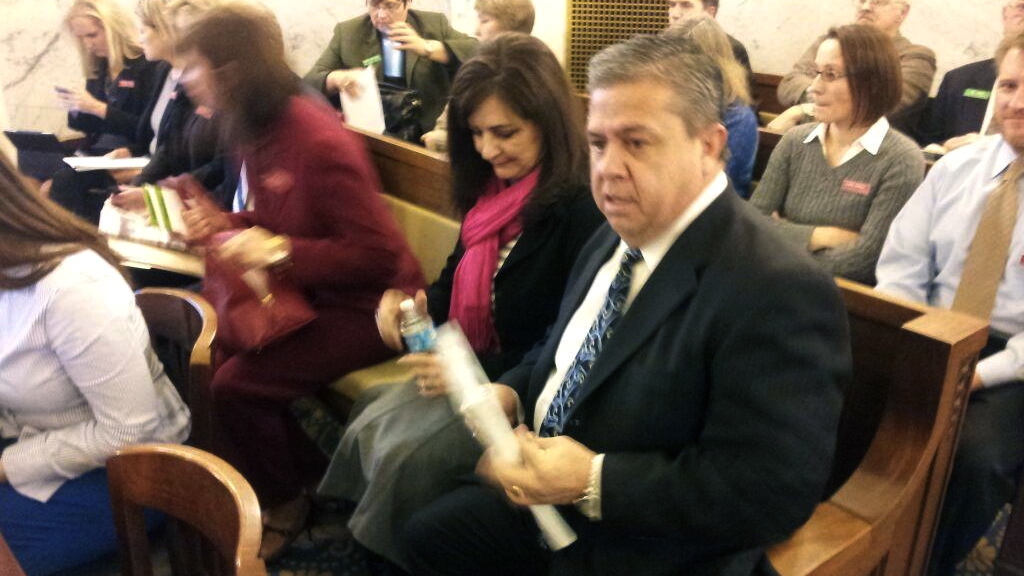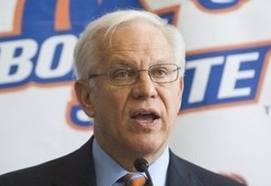After talking about the deficit, Medicare, tax reform and global warming — but before discussing immigration and Afghanistan — President Obama spent more than 500 words of his State of the Union address talking about education.
Here are the highlights, and some Idaho perspective:
Pre-kindergarten
Here’s what Obama had to say: “Tonight, I propose working with states to make high-quality preschool available to every child in America. Every dollar we invest in high-quality early education can save more than seven dollars later on – by boosting graduation rates, reducing teen pregnancy, even reducing violent crime. … So let’s do what works, and make sure none of our children start the race of life already behind. Let’s give our kids that chance.”
Idaho perspective: Pre-K has long been a touchy topic. Early learning advocates and some business leaders have pushed for expanded early education programs — pointing, as Obama did Tuesday, to research on the benefits of pre-K. The Legislature has resisted pre-K expansion, with some lawmakers contending that young children are best taught at home.

In a statement Wednesday, Superintendent of Public Instruction Tom Luna’s office didn’t outright reject Obama’s overture, but voiced reservations.
“Luna has always said that we know there are certain things a child should know and be able to do in order to be successful in kindergarten, but we also know the best place for children to learn those skills is in the home. … The president offered few details last night. Superintendent Luna still has concerns in expanding the public education system we have today when everybody agrees that we are facing financial challenges with the current system.”
STEM education
Here’s what Obama had to say: “Let’s also make sure that a high school diploma puts our kids on a path to a good job. … At schools like P-TECH in Brooklyn, a collaboration between New York Public Schools, the City University of New York and IBM, students will graduate with a high school diploma and an associate degree in computers or engineering. … Tonight, I’m announcing a new challenge to redesign America’s high schools so they better equip graduates for the demands of a high-tech economy. We’ll reward schools that develop new partnerships with colleges and employers, and create classes that focus on science, technology, engineering, and math – the skills today’s employers are looking for to fill jobs right now and in the future.”
Idaho perspective: In a statement, Luna’s office pointed out that the state is developing end-of-course assessments in science, and that Luna is seeking to restore $4.85 million to hire math and science teachers, a funding component that was part of Students Come First. “The president offered few details on his new approach to STEM last night; however, it is critical that any focus on integrating more STEM education reaches not just a few select schools, but creates equal access and opportunity for all students, no matter where they live or go to school.”
Also on P-TECH: The J.A. and Kathryn Albertson Foundation last week released a $5 million request for proposals for a charter school tailored after the Brooklyn model: a collaboration involving industry and university partners. Letters of intent are due March 8.
College affordability
Here’s what Obama had to say: “Today, skyrocketing costs price way too many young people out of a higher education, or saddle them with unsustainable debt. Through tax credits, grants, and better loans, we have made college more affordable for millions of students and families over the last few years. But taxpayers cannot continue to subsidize the soaring cost of higher education. Colleges must do their part to keep costs down, and it’s our job to make sure they do. Tonight, I ask Congress to change the Higher Education Act, so that affordability and value are included in determining which colleges receive certain types of federal aid.”
Idaho perspective: Tuition and fee increases have been an issue in Idaho for several years — exacerbated by the Great Recession, and state budget cuts that have forced universities and colleges to seek fee increases.

Boise State University President Bob Kustra discussed the funding issue in detail during his Joint Finance-Appropriations Committee presentation last month. In 2001-02, BSU received $73.6 million in general fund money from the state, accounting for 33 percent of the university’s budget. In 2012-13, the general fund appropriation was $74.1 million, or 18 percent of BSU’s budget. However, he said Idaho colleges remain a bargain, relative to neighboring states. “There’s nothing wrong with Idaho colleges and universities increasing tuition these days.”
The State Board of Education did not have an immediate response Wednesday on Obama’s Higher Education Act comments.
Disclosure: Idaho Education News is funded through a grant from the J.A. and Kathryn Albertson Foundation.
